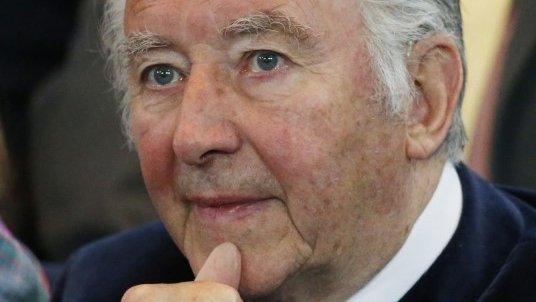Cyril Smith child abuse inquiry 'scrapped after his arrest'
- Published
According to a former officer, they were told to hand over all their evidence, as Nick Hopkins reports
An undercover police operation that gathered evidence of child abuse by Cyril Smith and other public figures was scrapped shortly after the MP was arrested, BBC Newsnight has been told.
The Liberal MP, who died in 2010, was held during a 1980s probe into alleged sex parties with teenage boys in south London, a source told the programme.
The source said Smith was released from a police station within hours.
The Met is looking into the handling of historical child sex abuse cases.
The force would not comment on the details of the allegations about Smith put to them by Newsnight.
A spokesman said it was "investigating allegations that police officers acted inappropriately in relation to non-recent child abuse investigations" however, and asked for anyone with information to come forward.
An independent, panel-led inquiry has also been set up by Home Secretary Theresa May to consider whether public bodies and other institutions failed in their duty to protect children.
'Secrets act' warning
Information has been passed to Newsnight by a former officer, who is familiar with the original investigation and its closure.
The order to scrap the inquiry, made after Smith and others had been arrested, came from a senior officer whom the undercover team had never met before, the source said.
Officers were then ordered to hand over all their evidence - including notebooks and video footage - and were warned to keep quiet about the investigation or face prosecution under the Official Secrets Act, the source claims.
He said the intelligence-led operation started in 1981 involving a team of undercover regional crime squad officers, including some from Yorkshire who were based in London for the secret inquiry.
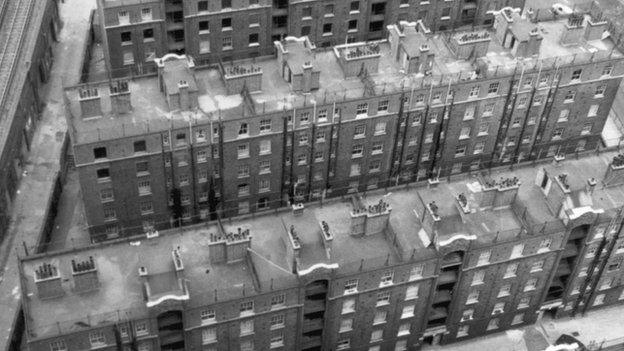
Part of the early 1980s investigation focused on Coronation Buildings in Lambeth
The detectives were stationed at Gilmour House, a large police headquarters building in Kennington, south London.
The source said the team targeted six or more addresses in the south of the capital. One focus was a flat in Coronation Buildings, Lambeth - a run-down tenement block less than a mile from the House of Commons.
During a three-month inquiry, officers working in shifts gathered a substantial amount of evidence of men abusing boys aged about 14, the source said.
That evidence included pictures and video taken from inside the flat, as a hidden camera had been installed with the help of a caretaker.
Smith is said to have been one of those caught on camera, another being a senior member of Britain's intelligence agencies.
According to the source, Smith was later seized at a property in Streatham, south London, where he had reportedly been taking part in a sex party with teenage boys.
He said Smith was taken to the former Canon Row police station - which is opposite the House of Commons.
But he was released that night and a duty sergeant who wanted to keep him in custody was reprimanded, the source says.
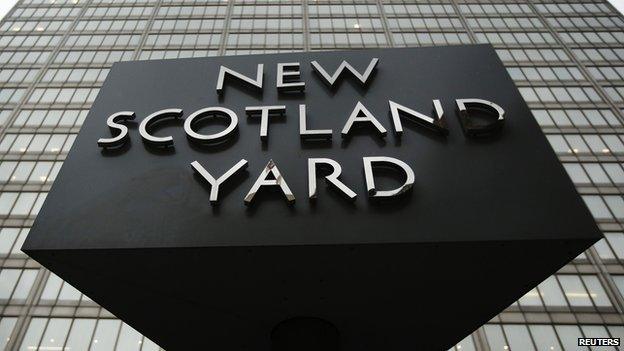
The Met says it is "investigating allegations that police officers acted inappropriately in relation to non-recent child abuse investigations"
The BBC has been told that as well as Smith and the member of the intelligence agencies, the undercover team also had evidence on two senior police officers.
The squad believed that boys from care homes were being provided "to order" for sex parties, but the inquiry was abruptly shelved, the source said.
The team was called together at Gilmour House and told by a senior officer - whom they had never met before - to hand over their notebooks, photographs and video footage.
They were read passages from the Official Secrets Act to deter them from speaking out, according to the source.
There was a row at the police building but the inquiry was closed and officers were assured Smith "would not be playing a role in public life any more". In fact, he continued as MP for Rochdale until 1992.
Newsnight's source spoke to the programme through an intermediary and is fearful of repercussions because of the scale of the alleged cover-up.

Power of the Official Secrets Act
The Official Secrets Act 1989 makes it an offence for any member, or former member, of the security services, police or civil service to disclose official information about their work.
It is also an offence for a journalist to repeat any such disclosures.
The areas covered by the act include releasing information on defence, international relations, security service activities, foreign confidences and information that might lead to a crime being committed.
The maximum penalties for breaking the law are two years' imprisonment, an unlimited fine or both.

The BBC first approached the Met about the claims in January, but the force has refused to be drawn into providing details on any live inquiry.
Roy Ramm, Commander of Specialist Operations at Scotland Yard told BBC Radio 4's Today programme it was understandable that officers involved had not come forward before.
"Don't underestimate the weight of a threat to your career and to your livelihood if someone says to you 'If you speak about this, you will lose you job'," he said.
He said the publicity may now bring other officers forward but added that the threat of the Official Secrets Act "must be removed" in order to get more information.
Labour MP Simon Danczuk, who has worked to expose Cyril Smith as a prolific paedophile, said police sources were scared to come forward.
He tweeted that officers needed a "cast-iron guarantee they can give evidence without fear."
He said: "It is my view that Smith was being protected and being protected by some fairly powerful people.
"He was protected because he knew of other paedophiles in the networks in which he operated and had he been prosecuted, then I think those other people would have been named by Smith and that's why they ensured that he was never put before the courts."
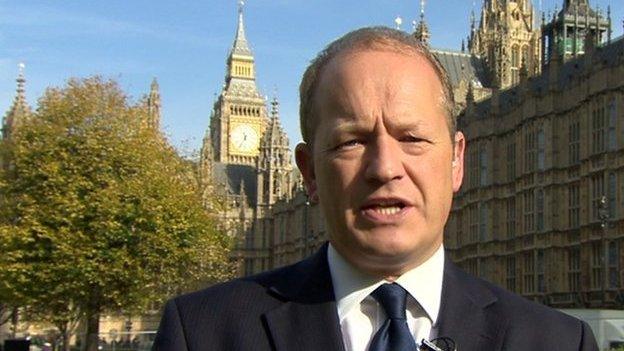
Labour MP Simon Danczuk has investigated child abuse by Cyril Smith
Newsnight asked former Scotland Yard detective Clive Driscoll, who investigated claims of child abuse in Lambeth in the 1980s and 1990s, to examine the allegations.
"I looked at them as I probably would have done when I was a police officer and, on the balance of probabilities, you would have to say they appear very credible," said Mr Driscoll, the officer whose inquiry led to the conviction of Stephen Lawrence's killers.
"Certainly the timing and the type of allegations that are made are ones that the Met would take very, very seriously."
He described the claims as "very credible and very frightening".
"If you take all of the information that appears to be out there together it does look like collusion with police officers and other agencies to prevent what is a straightforward criminal case," he added.
Watch Nick Hopkins's report on Newsnight or on BBC iPlayer.
- Published8 March 2015
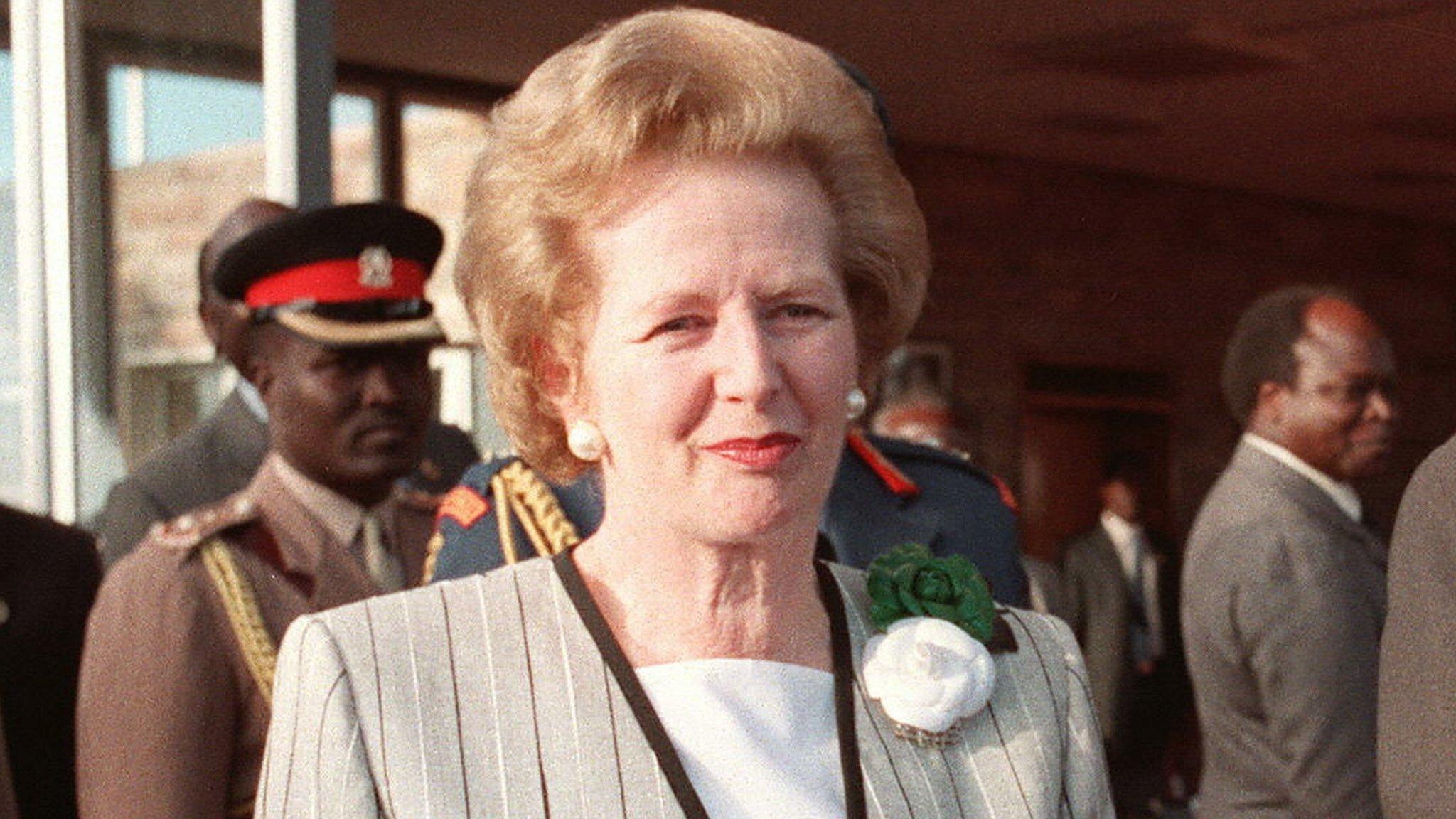
- Published17 July 2014
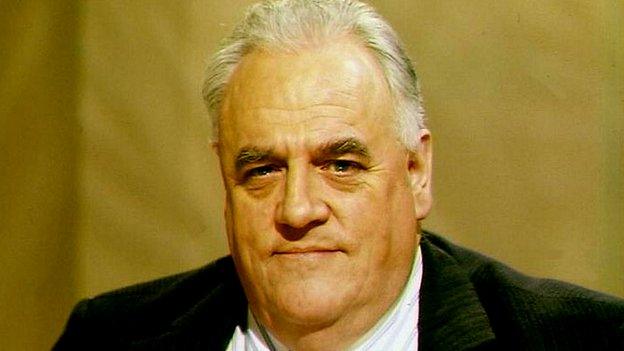
- Published16 July 2014

- Published29 April 2014
